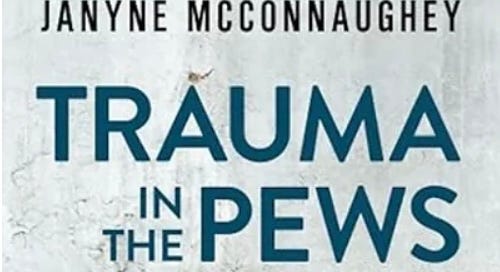Webinar: How to Be a Healing Church
A Ministry Resource that Preceded Trauma in the Pews!
This series of posts is a gathering of resources for Trauma in the Pews: The Impact on Faith and Spiritual Practices that will hopefully be helpful in encouraging ministry leaders to become trauma-informed/sensitive/responsive.
Introduction to Trauma in the Pews Resource Content
Trauma in the Pews Resource Index
This webinar— recorded in 2020 for the Church of the Nazarene—includes my initial thoughts that eventually became Trauma in the Pews. Behind the scenes, one human forgot to click record and the other one—me—forgot to click on the next slide. This comedy of human errors results in me laughing as the recording begins. The following is the initial part that didn’t record.
The topic of trauma is compelling during this difficult time in our nation’s history. It is my hope that this presentation will provide insights into the important ways our churches can be a place of healing for those who have experienced childhood trauma in their lives.
I will be wearing a few different hats during this presentation, the first being my heritage within the Church of the Nazarene. My father served as an elder in the church for over sixty years and I followed in my parent’s steps by attending Pasadena College and moved with the college to San Diego my Junior year and graduated from Pt. Loma and eventually retired from the faculty at Nazarene Bible College. I was a teacher and teacher educator for 40 years—until my mental health tsunami which precipitated retirement at the age of 62.
Thus, my second hat as a survivor of childhood trauma. I have published three books that provide a glimpse into my own experiences and detail what I will be discussing today. No matter how effective I am in doing this today, the books will always be a better way to fully understand the experiences and healing process required for a survivor of childhood trauma.
My third hat is as a trauma-related Mental Health Advocate and to that end, I am serving on the board of the Attachment & Trauma Network (ATN)—an organization that specifically addresses the need for trauma-informed practices in adoptive and foster families, schools, and communities.
My fourth hat is theology. Why Theology? The answer to that question began during my doctoral studies at the University of Colorado when presenting my research plan to my committee. The question I asked was if a teacher’s theology concerning the innocence or non-innocence of the child correlated with their teaching methods. A committee member asked, “Won’t you need to address original sin?” I said yes. They were fascinated. What I learned is that, as Wesleyans, our view of Imago Dei, the image of God, should affect every area of our lives—especially how we minister to those in our congregations and communities who exhibit mental health issues that may be trauma-related. With an understanding of the effects of trauma, the church has unlimited potential for being a healing church.
Click Here to watch the Webinar.
As the webinar ended, there were far too many questions for the allotted time. I wrote these three blogs to answer some of the questions as a follow-up to the webinar.




